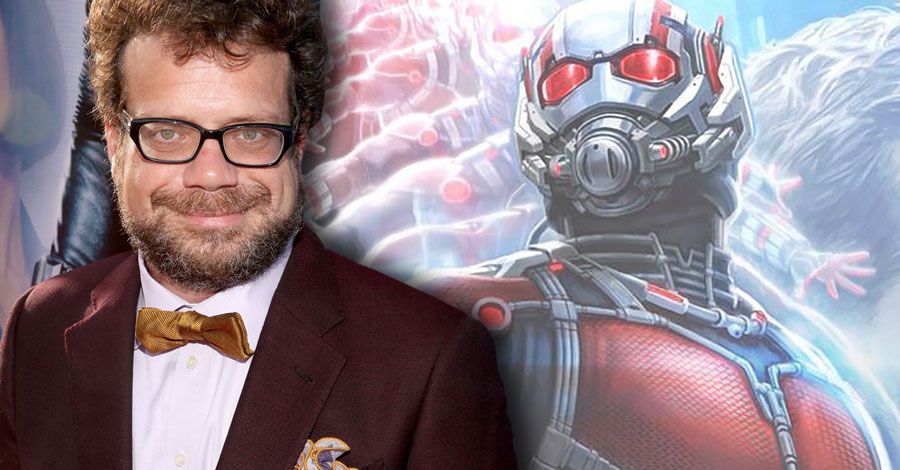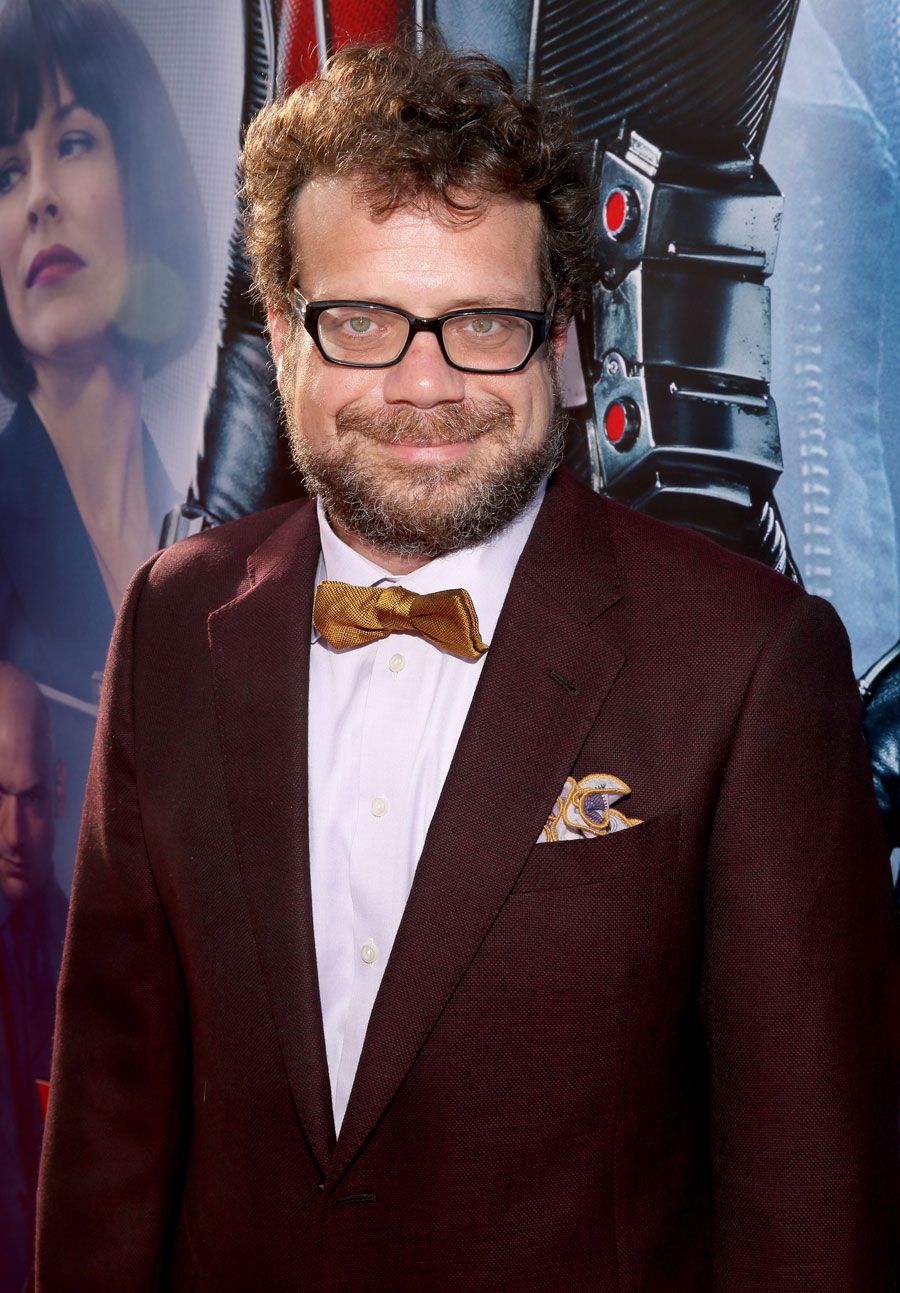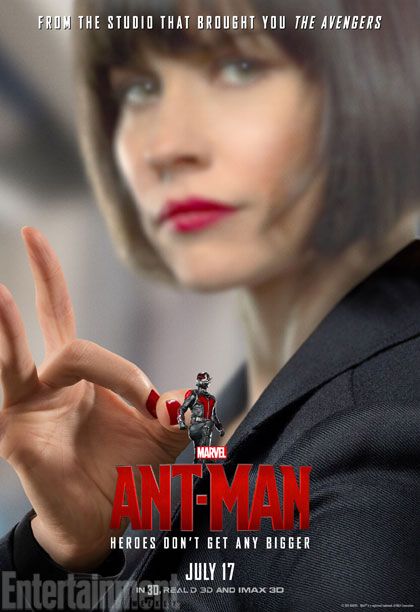If a superhero's stature can be judged not by his size but by his theme music, then Marvel's Ant-Man's standing pretty tall indeed, thanks to composer Christophe Beck.
Beck broke into the zeitgeist in the late 90s thanks to his work creating the soundtracks for episodes of "Buffy the Vampire Slayer" -- particularly the acclaimed musical episode "Once More With Feeling" -- and has gone on to score a prolific and diverse array of film projects over the years.
REVIEW: Marvel's "Ant-Man" Works Best When Staying Small
Now, he brings his knack for music both adventurous and lighthearted to the table for "Ant-Man," which derives as much inspiration from the classic heist style movies of the '70s as it does from traditional superhero fanfares. "It was really fun to give it a more of a sneakier tone than other Marvel films," says Beck, who sat down with Comic Book Resources to talk about creating a big score for the tiny hero.
CBR News: I'd love to hear how you mashed up a very classic super hero-type score with that funkier side that felt a little more in the vein of the heist movie kind of feel.
Christophe Beck: You know, there's the classic heist scores, and the even more modern classics like "Oceans 11," I think you could consider that sort of defines the template of what a heist score should sound like, the kind of instruments that are constantly used. Really, the question with Marvel -- at first, they were saying, "Oh, this is a heist movie, this is a heist movie." But as the cut took shape, and we continued to work on it, that tune kind of changed. It was more like, this is a Marvel movie with heist elements. There was a lot of discussion in how much and where these elements would be used.
The tone of the movie's really interesting because it's got that superhero action, but it's also got a lighter touch through a lot of it. How did that challenge what you were doing to capture just the right balance of those two different moods?
Well, if it's done right, then you kind of let the jokes be the jokes but let the music play the drama. I didn't worry too much about it in this movie, except to go as far as putting in a well-timed pause at the right moment when a character is supposed to be funny or react a certain way, to hearing the music out of the way and just let it play on the screen is sometimes the funniest way to have a scene. We did that a few times. Other than the sort of classic heist elements, which by their nature are more lighthearted in tone that gives the balance.
I won't ask which pieces of your "children" is your favorite --
Jimmy. Oh, you meant the music!
-- but was there one segment where you were excited by the opportunity presented, or relished the challenge at hand? The music -- not your children!
The most fun was working on the theme, because that's what I did first and that's what I had the most time to do. I was hired before getting, really, a frame of the picture, and I had a month or two to think about it and work on it. Really, more think about it than actual sit down and work on it. And you have a lot of time to think and imagine and throw out ideas. And maybe it's all in your head, whenever you have an idle moment, inline at the grocery store or whatever. It takes time sometimes to really let a good theme come out. I felt like I had the time, and that was really an exciting process to get it together.
To see everyone's reactions when I first played it for them was very positive. It was quite gratifying to hear that. I thought this was really fun to put it together. Not necessarily because it was fun while I was writing it, because it was actually difficult. It has a scene in the movie where Ant-Man is on a sort of cruising down a water pipe on a raft, made of thousands of ants, and I had written a kind of standard action cue in that spot; making it lighter made it feel like a wild ride, so it just kept getting lighter and lighter. But it was still missing something. Finally, for the couple hours really before my flight to London, I decided to just try to embrace the surf aspect of it and just really go for that part of it. I didn't quite bust out electric guitars, all the way through to the credits, but I did try to evoke a real surf-y feeling with some low piano and with the orchestra, and a really fast tempo and an odd meter. All that combines to make a really fun piece of score that goes really wild. I was able to just get something off before hopping on the plane, and one of the guys on my team stayed behind to finish it as I got off of the plane. Just in time to record.
What do you enjoy about working on projects that are in the superhero genre?
I think if you were to ask a composer of my generation what was your number one big influence, what made them become film composers, you'll get, nine out of ten answers, "Star Wars." A lot of us kind of grew up on the classic symphonic sound, and the superhero genre, in particular, is one that seems to call for that. It's the long tradition associated with that genre, the idea of the big, bold, brassy, muscular and, a lot of times, a sense of fun in the music. I think a lot of composers, I'm certainly one of them, just really enjoy working with that kind of a wide palette.
Also, it's great working with Marvel. Today's filmmakers consider melody a little bit old-fashioned, and although a lot of filmmakers like having themes in the movie, the way that themes are used, it has to be in a kind of circumspect kind of postmodern way. A little more minimalist, a bit less overt in their usage. That's just the more modern style of contemporary film scoring in Hollywood. But Kevin Feige at Marvel's a bit of a throwback, and he really likes the traditional sounds and the traditional approach to superhero scoring. So it's great to be able to embrace that.
Ever since your breakthrough work on "Buffy the Vampire Slayer," you've gone on to do some amazingly diverse film scores. Did working on the phenomenally successful "Frozen" change the game in any special way?
You know, I would say for me, personally, yeah. Having a hit like that be on the first page of your credits, it puts you -- it just makes people look at you just a little bit differently. And it's certainly been very nice to have that working for me. There's also something nice, of course, about being a part of a movie that's now going to live forever. It's one of Disney's most successful animated films. It's certain to be considered a classic in the future, and it's enormously satisfying to be a part of that.
Speaking of things that live forever, you're doing "The Peanuts Movie" next. Tell me what your approach is, because, obviously, the classic Vince Guaraldi music from the "Charlie Brown Christmas Special" and beyond is still so resonant. How did you want to incorporate that, or move past that?
First of all, let me just say, I've been in the situation that I've had to step in some mighty big shoes before on the "Pink Panther" movies. I kind of threw my hands up in the air and just got to say, "Why bother?" in a way. Not why bother doing it at all, but why think about trying to match that musical legacy. Or in any way, try to create something iconic as they did. You can't really try to do that. It happens or it doesn't.
With the "Peanuts" movies, I grew up on those specials from the '60s and '70s, that, of course, rerun to this day. I'm very fond of all that Vince Guaraldi music, so what we did was try to find spots in the film where we could sort of touch down and remind people who were watching the film that it's still a "Peanuts" movie, and there's still a place for that music in the film. There's a bunch of spots where we quote the Guaraldi music, or we actually re-record his pieces quite faithfully.
The score proper is a little bit more orchestral. Certainly, the scores for the specials were all, mostly anyway, just small jazz combo, and this style of scoring at the time is very different than it is today. A score today has to pay special attention to a lot of different emotions in the scene, and has to help the audience along from one moment to the next -- especially in a comedy, and especially in a family comedy.
But those old Christmas specials, they never did that. Guaraldi would write these brilliant jazz, pop pieces, and they would just kind of slide in. It was brilliant for his time ,and something that I have very fond memories of. We did what we could to preserve that in this film.



